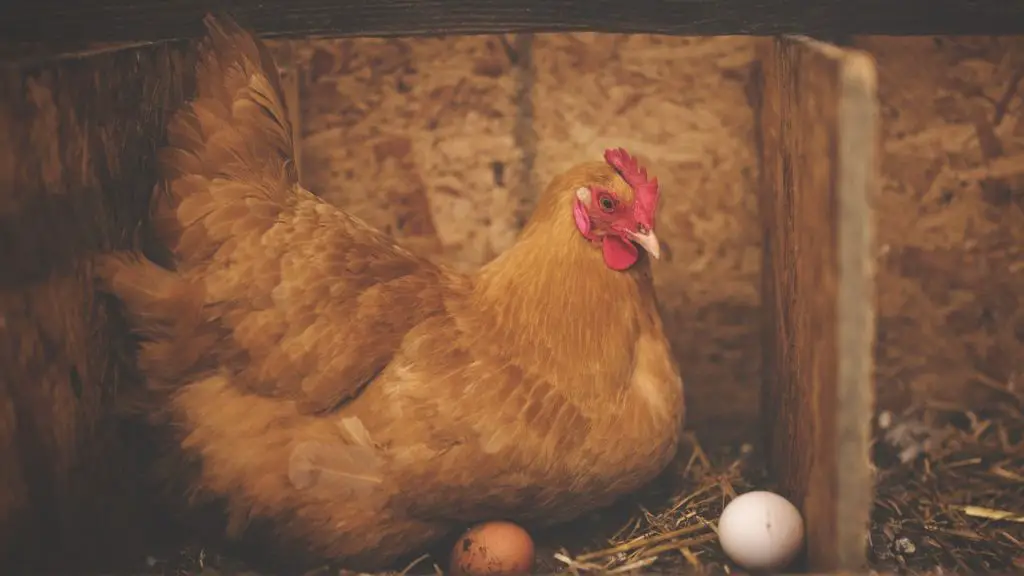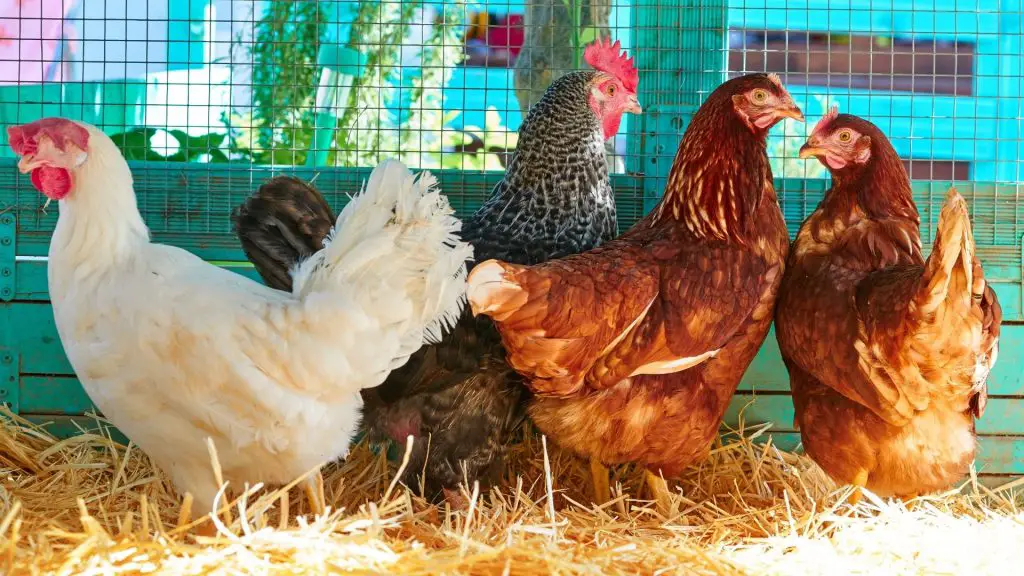Everyone wants to make a profit. If the job isn’t cutting it, consider other avenues like starting an egg-laying business. It’s a complex process, but you can start earning tons of money with the right tools and knowledge.
Here’s how you can start a chicken egg farm:
1. Consider your reason for wanting to create an egg farm.
2. Research your state’s agricultural laws.
3. Determine your farm’s budget.
4. Pick a chicken breed that you will use for egg-laying.
5. Buy suitable feed for your chickens.
6. Learn how to handle eggs properly.
7. Start selling your chickens’ eggs.
The rest of this article will elaborate further on the steps and how you can begin building your egg-laying business.
7 Steps to Start a Chicken Egg Farm
1. Consider Your Reason for Wanting to Create an Egg Farm

There are plenty of reasons why people would start an egg farm. Generally, the reasons usually fall under two categories: to make a profit or as a hobby. Figuring out your primary motivation and goals is essential and can also be something to consider when budgeting.
If you start a chicken egg farm to create a profitable business, you’ll have to take this process seriously and make a proper business plan and budget. You’ll also have to be more consistent and focused on customer satisfaction and retention.
However, if you choose to start a chicken egg farm as more of a hobby rather than a serious business, you’ll have a little less on your plate. You’re unlikely to invest in marketing and delegation, and you’ll want to focus on taking care of your hens and producing eggs to bring in more chickens, whether you keep the eggs for yourself or sell them once in a while.
Regardless of the reason, you’ll want to know about your goals and incentives moving forward so that you can determine what steps you’ll want to follow and how much you’re willing to commit to the farm.
2. Research Your State’s Agricultural Laws

The first step in starting your chicken egg farm is awareness of the legality behind it. Every state has different laws regarding how many hens you can have, how you should maintain your eggs, and where and how you can sell the eggs.
Try researching your state’s agricultural laws by visiting the website of your state’s agricultural department. You can also try calling the agricultural department if you find that you still have questions about starting your egg-laying business. Additionally, it’s imperative to follow federal agricultural laws as well.
It’s also vital that you send a message about your business to the appropriate government agencies if required.
Not complying with federal or state laws can result in you getting fined or even imprisoned. It’s wise not to skip this crucial step.
3. Determine Your Farm’s Budget

There are many financial aspects of starting a chicken egg farm that requires consideration. Budgets can be an extraordinary way to keep track of finances and know how much you’ll need to spend to make your business successful.
The following are some important financial factors to consider when creating your chicken egg farm’s budget:
- You’ll need to choose a location. When creating a poultry business, picking the most appropriate site for taking care of chickens is essential (especially if you plan to have hundreds or thousands of hens). If you live in a city, it would be best to rent or own land dedicated to taking care of your chickens.
- You’ll have to buy chicken feed (lots of it). Chickens will produce more eggs and stay healthier if you feed them quality chicken feed. Though a diet of grass might be enough to keep the chickens fed, the chicken feed will help the most with egg production.
- If you want to retain customers, consider investing in customer communication. Plenty of companies can offer you marketing tools such as newsletters to stay in touch with your customers. Be sure to keep your customers interested by writing content related to any news regarding your business, information on the nutrition of eggs, and any sales you are having.
- If you feel like you won’t do this on your own, consider delegating and hiring employees. Sometimes farming by yourself can be a hassle, and you’ll need extra muscle to get things done. Consider hiring employees and delegating tasks such as feeding the chickens, selling the eggs, delivering eggs, or writing your newsletter content or marketing.
- If you want to attract more customers, consider purchasing marketing and advertising tools. In this current age of technology and information, social media has become a powerful tool in marketing and promoting businesses. Consider purchasing advertisements for your business and investing in different marketing methods.
- Consider investing in a delivery service. Today, businesses offer delivery services for just about every product imaginable (people can even purchase groceries and deliver them to their houses). Consider offering delivery services to bring eggs to your customers, but don’t forget to include the costs that might come with delivery, such as buying gas or purchasing a particular vehicle to conduct the deliveries.
In addition to your budget, you also want to be sure that you’ll be prepared to handle any emergency or unexpected expenses. You especially want to keep in mind economic downfalls within the country or your state that would cause feed prices to go up, which in turn would mean increasing the costs you set for your products and services.
4. Pick a Chicken Breed That You Will Use for Egg-Laying

Not all chickens are created equal. Some hens are better for egg production than others, and you want to be sure that you pick the right breed.
This section will go over some of the best breeds for farmers looking to start a chicken egg farm.
What Is the Best Chicken for Egg Production?

Every farmer starting an egg-laying business needs to know what chickens will be best for egg production. Be sure to research and figure out what hens will be best for your business.
Some of the best chicken breeds for egg production are hybrid hens and larger chicken breeds. Most of these chicken breeds that are great for egg production can lay up to 250 eggs a year which is profitable for your business.
The following breeds are known to be some of the best chickens for egg-laying:
- Hybrids like the Golden Comet are magnificent at egg production. Typically, hybrid hens can lay around 280 eggs on an annual basis.
- The Rhode Island Red is also an excellent egg producer. The Rhode Island Red can lay around 250 eggs per year.
- Consider buying a Leghorn. Leghorns also lay about 250 eggs a year.
- Sussex hens are also a great breed. Sussex hens are another chicken breed that can lay 250 eggs yearly.
- The Plymouth Rock hens are easily tamable and suitable for producing eggs. The average Plymouth Rock hen can lay up to 200 eggs a year.
- The Ancona hen is also a viable option. The Ancona hen also produces up to 200 eggs annually.
- The Barnevelder isn’t a great flyer but can produce plenty of eggs. The Barnevelder can lay up to 200 eggs a year and be an excellent asset to a garden.
- If you have a larger space, consider Hamburg. The Hamburg hen can lay up to 200 eggs a year.
- Marans are hard to tame but can still produce an abundance of eggs. The Maran has 200 eggs every year.
- The Buff Orpington is easily trainable and can lay up to 180 eggs a year. Though the Buff Orpington lays the least amount of eggs on this list, its tamability and the number of eggs they produce make it a viable option.
Keep in mind the behaviors of your hens and how they’ll sport living in their particular setting. The Leghorn, for example, tends to be restless and even noisy and might not cooperate reasonably with an urban environment.
5. Buy Suitable Feed for Your Chickens

Food for the chickens is another factor that can make or break egg production. It’s important to choose a suitable feed. You want to be sure that you’re well-informed on a good diet for your hens and some of the proteins they’re likely to consume.
Chickens need 20 grams (0.71 oz) of protein a day. Protein will help your hens lay eggs throughout the year.
Here are the different kinds of food you should feed your hens:
- Pellets
- Mash
- Crumble
- Shell grit
- Chicken scratch
- Bok choy
- Silverbeet
- Endive
- Chickweed
- Cabbage
- Cucumbers
- Melon
- Squash
- Other small fruits and vegetables
Be sure to avoid feeding your hens fatty foods or foods with excessive salts. Onions, avocados, chocolates, and even dry beans are also bad options. These foods can interfere with egg production and can even cause illnesses in your hens.
Related: What to Feed Backyard Chickens? | Information and Facts
Extra Tips on Boosting Egg Production
- Give your hens proper medical attention when needed. Healthy hens make for healthy egg production. Be sure to vaccinate your hens and to get them checked for diseases that they could contract.
- Don’t hesitate to spike your hens’ protein intake. Protein will help your hens produce eggs, so be sure to give them plenty of protein, including a little extra once in a while to ensure egg production.
- You can try breeding your hens. Hybrid chickens, as mentioned previously, are excellent at producing mass amounts of eggs a year. You can try breeding your hens to create more hybrids.
6. Learn How to Handle Eggs Properly
Universally, most people know that eggs are fragile. However, it would be best to learn to handle and care for eggs before you sell them.
When you collect your eggs, be sure that you keep them at a temperature of 45°F (7.22°C) 24 hours before you sell them. This practice keeps the egg from hatching and potentially picking up any bacteria.
Next, you want to get your eggs graded based on the U.S. Grade Standards. If you skip this step, the eggs will be considered “unclassified.”
As a safety and health procedure, discard any damaged, rotten, leaking, or bloody eggs. Tossing these eggs away is essential to protecting your customers’ health and wellbeing. Additionally, serving quality eggs is what will keep your customers satisfied.
7. Start Selling Your Chickens’ Eggs

Now that you’ve done your research, taken appropriate care of your hens, and learned how to handle and prepare the eggs correctly, you can begin selling your chickens’ eggs.
Since you likely created a budget and a business plan for your egg-laying business, you can begin to think about the prices of your eggs and any services you provide. Consider the amount of money you spent on investments towards feed, taking care of your hens and even gas prices for your vehicle. You don’t want to overprice or underprice your products when you’ve worked a lot to produce them.
You also want to think about the quality of your eggs and how many you are selling per carton. Typically, egg cartons contain a dozen (12) eggs.
Related: How to Sell Chicken Eggs? | Helpful Tips
Know-How to Handle Egg Production in the Winter
Wintertime and other seasonal stresses can slow egg production. The last thing you’d want is to be profitable throughout the year but then suddenly feel like you’re stuck in a low point where you’re not producing enough eggs to make a decent profit.
However, there are ways to keep a steady flow of egg productions throughout this time.
This section will elaborate on boosting egg production in the winter season so that you can continue making a profit.
How to Increase Chicken Egg Production in Winter?
Continuing egg production in the winter isn’t as harrowing as it sounds. There are plenty of straightforward methods you can utilize to keep your hens producing eggs throughout the cold season.
Here are some of the ways that you can boost your egg production in the winter:
- Turn on the lights in the chicken coop. Hens need long hours of sunlight to lay eggs. You can accomplish this by leaving a light on in your chicken coop in the evening and turning them off before bedtime.
- Give your hens extra food. Your hens need as many calories as they can to keep warm during this time. However, you can boost your production by giving them more protein, so they have more than enough calories to keep themselves warm and produce eggs.
- Give your hens warm water to drink. Though it’s tempting to let your hens drink the snow, give them warm water often so that they can keep warm and use the water to lay eggs.
- Make sure your hens are the right breed. Though your egg production will mostly drop throughout the winter season, chicken breeds known for producing mass amounts of eggs will still be able to create a good amount throughout the year.
- Consider making your hens a nest box. Your hens need to be kept warm during this season to be able to produce eggs. Make a nest box for each of your hens, and make sure it’s warm and comfortable.
Summary
Starting a chicken egg farm can be a long and complicated process. However, knowing the proper steps to take can help you ease into creating your new business.
Beginning an egg-laying business requires knowing the legality behind starting an egg farm, creating a budget and plan, choosing the right chickens, learning how to care for your hens, and keeping consumers healthy and satisfied with high-quality and safe-to-eat eggs.
Knowing those steps, you can begin setting up your chicken egg farm and making a good profit off of those eggs.
Related: What to Know About Chicken Farming? | Explained for Beginners!
List of Sources
How Are Eggs Graded by the USDA?
